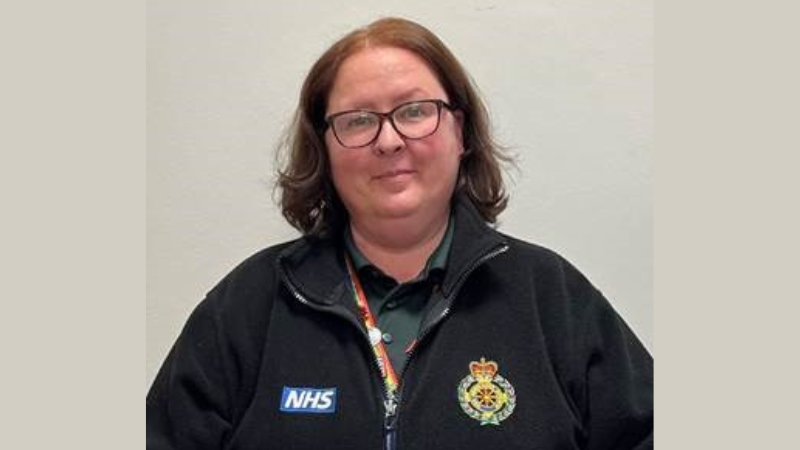
To mark the end of our month-long awareness campaign, Cath Philpott, talks to us about her debilitating diagnosis’, her fight to be heard and how she has adapted to living with a life-long disability.
Cath has been part of the blue light family for 18 years, working for NHS Direct for more than a decade before coming to us at 111 in 2014. That year, at the age of 42, she started experiencing abdominal pain and knew it wasn’t your usual stomach ache, so she went to the doctors. This was the start of a very long journey to being correctly diagnosed.
She said, “Initially, I was diagnosed with having gallstones. After I had my gallbladder removed, the pain hadn’t gone away, in fact it got progressively worse. My GP sent me for all sorts of tests. Different doctors would give me different advice, so I started to make a list of all other little symptoms that I had started to get and showed the list to one of the GPs. After doing my own research and after three years of no answers, I asked if it could be fibromyalgia. I was referred to rheumatology and finally diagnosed with fibromyalgia and osteoarthritis. Alongside the referral to rheumatology, I was sent to gastro and saw a consultant who arranged an urgent colonoscopy. A week later, I was diagnosed with ulcerative colitis. I can’t explain the relief I felt to finally have a proper diagnosis for all the symptoms and pain I was in.”
Throughout her three-year fight for a diagnosis, Cath experienced all-too-well the stereotypical behaviour that sadly, many people with disabilities, face on a daily basis. She told us, “People I know have called me a hypochondriac. One person even said that fibromyalgia was all in a person’s mind and it wasn’t real. I was in lots of pain all over my body and felt belittled by people who couldn’t see anything wrong physically. It upset me a great deal that they wouldn’t listen or believe what I was telling them.”
Luckily for Cath, after she was diagnosed, things changed for the better. She said, “I learned to work around a routine that worked for me and helped me manage my pain relief and symptoms. I applied for specialist equipment at work which made a really big difference. I had to pace myself and remind myself that I couldn’t do everything. My manager has been amazing and supportive throughout and I had access to physiotherapy through NWAS. I still have bad days and very bad days but these are less and less.”
Cath believes it’s important for people with disabilities to share their stories, so it can raise awareness and challenge stereotypes. Cath said, “To change stereotypes, we have to listen to what people are saying and empathise with them. We need to raise awareness of all disabilities, hidden disabilities, and any stigma that surrounds them, then more people will open up and share their struggles with the comfort of knowing there is somebody that is truly listening and offering support and understanding.”